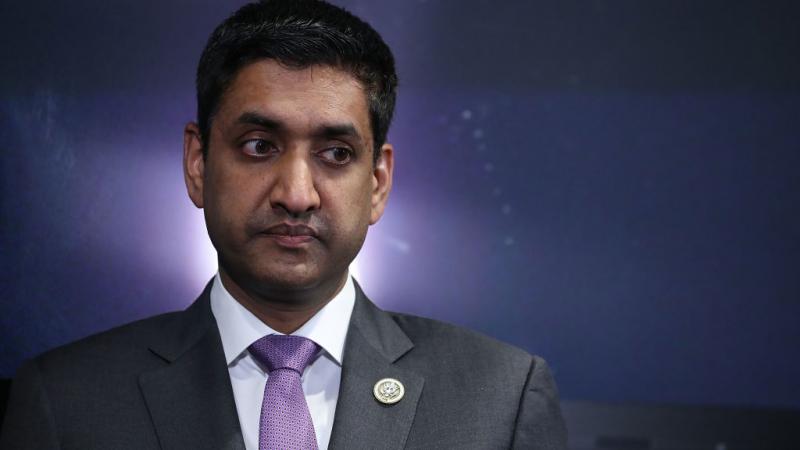Stacey Abrams built national wave arguing Georgia elections racist. A judge just crashed her party
Obama-appointed judge rules Georgia's election integrity practices requiring voter ID and citizenship checks are legal and constitutional.
Democrat Stacey Abrams built a national movement on the premise that her native Georgia was the epicenter of a 21st century minority voter suppression machine. In the process, she acquired nationwide fame, personal wealth and a multimillion dollar fundraising juggernaut while convincing Joe Biden that he needed to bust Jim Crow 2.0.
But on the eve of Abrams' second attempt to win her state's governorship, a federal judge appointed by former President Barack Obama obliterated her core argument.
U.S. District Judge Steve C. Jones ruled Friday that Georgia's election integrity practices requiring voter ID and citizenship checks were constitutional and in compliance with the Voting Rights Act (VRA), roundly rejecting the arguments of Abrams' Fair Fight Inc. voter advocacy group just weeks before Election Day.
"Although Georgia's election system is not perfect, the challenged practices violate neither the Constitution nor the VRA," Jones ruled in a 288-page decision. "As the Eleventh Circuit notes, federal courts are not 'the arbiter[s] of disputes' which arise in elections; it [is] not the federal court's role to 'oversee the administrative details of a local election.'"
"Having held a non-jury trial and considered the evidence and arguments of the parties, for the foregoing reasons, the Court finds IN FAVOR of Defendants and against Plaintiffs on all remaining Counts of Plaintiffs' Second Amended Complaint," the court concluded.
You can read the ruling here:
The decision was a major win for Gov. Brian Kemp, Abrams' opponent in the November general election for the second time in four years, as well as Secretary of State Brad Raffensperger. The two Republicans cheered the decision while mockingly reminding voters of Abrams' prior claims of racial suppression and a stolen election back in 2018, when she initially refused to concede she lost.
"This is a win for all Georgia election officials who dedicate their lives to safe, secure and accessible elections," Raffensperger declared. "Stolen election and voter suppression claims by Stacey Abrams were nothing but poll-tested rhetoric not supported by facts and evidence."
Added Kemp: "Judge Jones' ruling exposes this legal effort for what it really is: a tool wielded by a politician hoping to wrongfully weaponize the legal system to further her own political goals."
Though she lost on every count in the decision, Abrams on Friday night doubled down on her claims. "There's no denying voter suppression under Brian Kemp and Brad Raffensperger," she wrote on Twitter.
Actually, Jones did deny it. The judge appointed by Obama a decade ago borrowed heavily from the U.S. Supreme Court's landmark ruling last year that upheld Arizona Attorney General Mark Brnovich and his state's law outlawing ballot harvesting or trafficking. The Brnovich decision, as it is known, was cited several times as Jones concluded the Georgia laws and regulations requiring voters to pass a citizenship check and voter ID did not violate either the Constitution or the Voting Rights Act.
"With respect to citizenship matching, the Court finds that after weighing the Brnovich guideposts, citizenship matching also does not violate Section 2 of the VRA. ... The Court finds that Georgia's system of voting is equally open," Jones wrote.
On the MIDR (missing identification required match legal requirement for voter ID), the judge said he had concluded that the "disparate impact" of photo ID on voters was "de minimis," or legally insignificant, noting that "97.97% of Black voters were not impacted."
"The Court finds that the impact of MIDR is like the impact of the Arizona law and does not render the election system unequally open," Jones wrote.
The decision was a stinging loss for Abrams as she makes her second bid against Kemp for governor. She was widely panned for suggesting her 2018 election was stolen and initially refusing to concede, but she nonetheless gained steam among liberal voting activists in the years that followed.
Now trailing Kemp in the polls, Abrams built a fundraising juggernaut and a national voter rights movement on the argument that states like Georgia disenfranchise minority voters and engage in voter suppression. She raised millions for her voter rights groups, amassed a $3 million personal net worth and raised a stunning $50 million for her governor's campaign in just a few short months, much of it from outside Georgia.
Her message never wavered.
"Voter suppression in the 21st century is the province of Republicans," she argued in an interview shortly before the 2020 election. Long after she conceded the election she lost by 1.5%, she continued to insist she actually prevailed, including in a New York Times article a year later. "I feel comfortable now saying I won," she said.
Over the last couple of years, her arguments made a believer of Biden, who predicted Abrams could one day be president and adopted the Georgia Democrat's favorite sayings. "Jim Crow 2.0 is about two insidious things: voter suppression and election subversion," the president tweeted earlier this year.
Abrams' group carried the arguments of an unfair system and racial suppression in Georgia into the courtroom in 2019 in what became one of the longest voting rights cases in state history.
The court found Friday there wasn't unlawful suppression in Georgia, sometimes in detailed fashion. While acknowledging there was some racism in the electoral politics of the state, Jones declared Georgia's election integrity measures were not racially unfair or designed to suppress minority voters.
The judge in a footnote went out of his way to note even one of the Abrams group's experts "affirmed that he was not opining that any portion of Georgia's voter registration practices and systems were adopted with a discriminatory intent."















